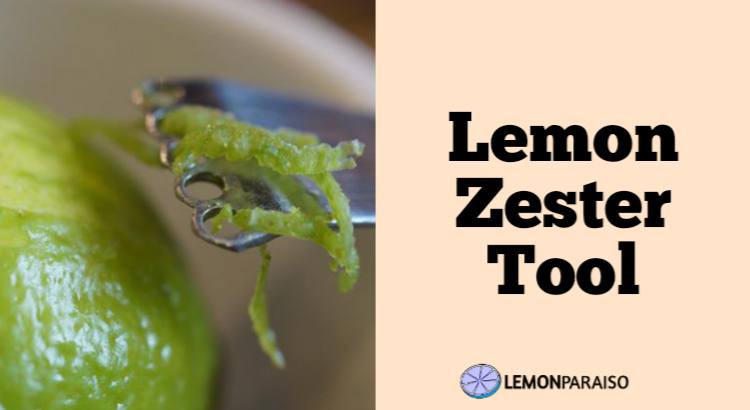How Long Do Lemon Seeds Take To Germinate?

Lemon seeds are an excellent way to propagate new lemon trees, but many people wonder how long it takes for them to germinate. Germination is a critical process in plant growth, where the seed starts to sprout and grow roots.
How Long Do Lemon Seeds Take To Germinate?
The germination time for lemon seeds can vary depending on the conditions provided, with a range of two to four weeks being common. Fresh, viable seeds tend to germinate more quickly than older seeds, with the process sometimes starting as early as one week.
Factors such as temperature, humidity, and seed quality play crucial roles in determining the exact germination time. Providing optimal conditions will help to ensure that the seeds germinate more quickly and reliably.
Patience is key during this period, as some seeds may take longer to sprout than others. Observing the seedlings daily will help to monitor their progress and identify any potential issues.
Germinating Lemon Seeds Indoors
Indoor germination of lemon seeds can provide a controlled environment, increasing the likelihood of successful germination. To begin, gather fresh lemon seeds and rinse them thoroughly to remove any remaining fruit pulp. Next, plant the seeds in a well-draining seedling mix, ensuring that they are about half an inch deep.
Cover the container with a plastic wrap to maintain humidity and place it in a warm, well-lit area. Regularly check the moisture level of the soil and mist it lightly to prevent it from drying out. Once the seedlings emerge, remove the plastic wrap and continue to provide consistent light and water.
Lemon Seed Germination Temperature
Temperature plays a critical role in the germination of lemon seeds, with an optimal range between 68°F to 77°F (20°C to 25°C). Temperatures below this range can delay or even prevent germination altogether. On the other hand, excessively high temperatures can cause the seeds to dry out or inhibit growth.
A consistent and stable temperature is vital for successful germination, and using a seedling heat mat can help maintain the appropriate warmth. Monitoring the temperature regularly and making necessary adjustments will promote healthy germination and seedling development.
Lemon Seed Germination Process
The lemon seed germination process begins when the seed absorbs water, causing it to swell and break through its outer shell. The radicle, or embryonic root, emerges first and starts to grow downwards in search of nutrients and moisture.
As the root system develops, the shoot, or plumule, begins to grow upwards, eventually emerging from the soil as a seedling. This process is facilitated by adequate moisture, temperature, and oxygen levels. It is essential to maintain optimal conditions throughout the germination process to ensure the successful growth of lemon seedlings.
Lemon Seed Germination Requirements
Several key requirements must be met for successful lemon seed germination. First, the seeds should be fresh and viable, as older seeds have a lower germination rate. Second, the seeds need to be properly cleaned of any fruit pulp, as this can lead to fungal growth and prevent germination.
Third, a well-draining, nutrient-rich soil is necessary to support healthy root development. Fourth, providing consistent warmth and humidity will aid in germination, with a temperature range of 68°F to 77°F (20°C to 25°C) being ideal. Finally, adequate light is crucial for successful germination and seedling growth, with natural or artificial light sources being suitable.
Lemon Seed Germination In Water
Lemon seeds can also be germinated in water, although this method requires close monitoring to prevent rotting. To start, clean the seeds thoroughly and place them in a shallow container filled with water. Ensure that the water is changed every day to maintain cleanliness and prevent bacterial growth.
Within one to two weeks, the seeds should begin to split open, and tiny roots will emerge. At this point, transfer the seeds to a well-draining soil mix, taking care not to damage the delicate roots.
Lemon Seed Germination In Soil
Germinating lemon seeds in soil is a common and effective method. Begin by choosing a well-draining, nutrient-rich soil mix specifically designed for seedlings or citrus plants. Plant the cleaned seeds about half an inch deep in the soil, ensuring they are adequately spaced.
Keep the soil consistently moist but not waterlogged, as this can lead to root rot. Covering the container with a plastic wrap can help maintain humidity and temperature levels conducive to germination. As the seedlings emerge, gradually remove the plastic wrap and continue providing proper care, including regular watering and exposure to adequate light.
Lemon Seed Germination Success Rate
The success rate of lemon seed germination can vary greatly depending on factors such as seed quality, environmental conditions, and care provided. Fresh, viable seeds generally have a higher germination rate, often around 70% to 90%.
However, older seeds or those exposed to poor conditions may have a significantly lower success rate. Ensuring optimal temperature, moisture, and light levels, as well as using well-draining soil, can help improve the germination success rate. It is also helpful to plant several seeds at once to increase the likelihood of successful germination.
Lemon Seed Germination Tips
To maximize the success of lemon seed germination, consider the following tips:
- Use fresh seeds from a ripe, healthy lemon, as these have a higher germination rate.
- Clean the seeds thoroughly to remove any fruit pulp, which can cause mold growth.
- Plant the seeds in a well-draining, nutrient-rich soil mix designed for seedlings or citrus plants.
- Maintain a consistent temperature of 68°F to 77°F (20°C to 25°C) to promote germination.
- Keep the soil moist but not waterlogged to prevent root rot and fungal issues.
- Provide adequate light for the seedlings, either through natural sunlight or artificial sources such as grow lights.
- Be patient, as germination can take anywhere from one to four weeks, depending on conditions.
Lemon Seed Germination Stages
The germination stages for lemon seeds are as follows:
- Imbibition: The seed absorbs water and swells, causing the outer shell to crack.
- Radicle emergence: The embryonic root, or radicle, emerges from the seed and begins to grow downwards.
- Shoot emergence: The shoot, or plumule, starts to grow upwards and eventually breaks through the soil surface.
- Cotyledon expansion: The first leaves, or cotyledons, expand and start photosynthesizing.
- True leaf development: The seedling produces its first true leaves, which are characteristic of the lemon plant.
- Seedling growth: The seedling continues to grow, developing a more robust root system and foliage, eventually maturing into a fruit-bearing tree.
Will Dried Lemon Seeds Grow?
dried lemon seeds may have a lower chance of germination than fresh seeds, as they may have lost some of their viability due to dehydration. Additionally, factors such as temperature, soil quality, and moisture levels can also affect the success rate of growing lemon seeds.
It is recommended to plant several seeds and provide them with proper care and attention, including sufficient sunlight, water, and nutrients, to increase the chances of successful germination and growth.
In conclusion, the germination period of lemon seeds can vary depending on various factors such as temperature, moisture, and seed quality. On average, lemon seeds take around 2-3 weeks to germinate, but they can take up to several months under unfavorable conditions.
Therefore, it is important to ensure that the seeds are provided with optimal growing conditions to increase the chances of successful germination. Overall, if you are wondering How Long Do Lemon Seeds Take To Germinate? the answer is around 2-4 weeks, but patience and proper care are necessary for a successful outcome.



